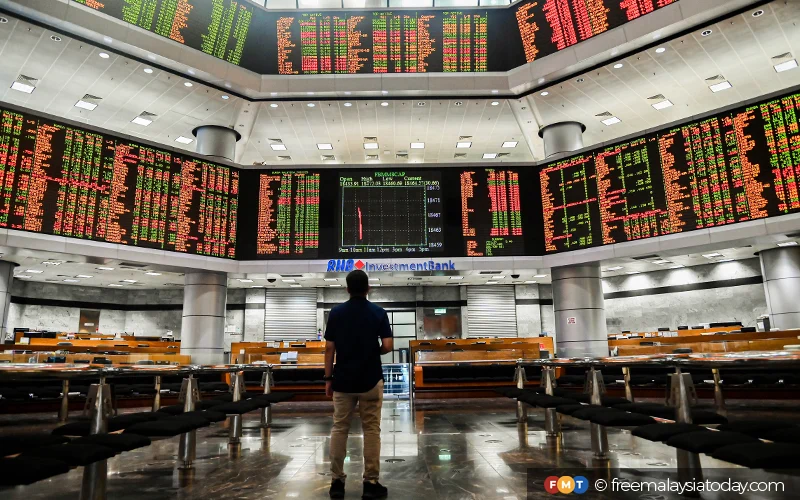
PETALING JAYA: Over the past few years, Malaysia has been beset by political instability with a merry-go-round of new administrations. This has wreaked havoc on the local equity markets as investors and international funds have left in droves to other more stable and higher growth markets.
Ironically, it appears that political instability in Malaysia is now a given, and investors and fund managers are now less fazed by it.
In light of the coming state elections, some analysts are suggesting the outcome of state-level polls will have little bearing on the local economy and equity markets, as political uncertainty is the new norm.
However, it may also mean that given the dearth of catalysts to drive the markets, Bursa Malaysia will continue to remain in the doldrums.

Penjana Kapital CEO Taufiq Iskandar said although political instability is a source of headwinds to the economy and stock market, the outcome of state elections is “inconsequential to the direction of the local market”.
“Market participants need to get used to the idea that political instability is the new norm,” he told FMT Business.
“We have seen this recently in Spain, where no single party or coalition could garner a comfortable majority, and similarly in Thailand as well.”
Taufiq believes Malaysia will be in a state of political uncertainty even after the state elections, and the “market will think there will be absence of drivers to move the performance of local markets”.
He acknowledged that if the ruling Pakatan Harapan (PH) fails to defend Selangor, Penang and Negeri Sembilan, this would lead to instability at the federal level.
The last time the FTSE Bursa Malaysia KLCI (FBM KLCI) was within touching distance of 1,900 points was five years ago.
Since then, it has tumbled 22.68% or 428.32 points to 1,459.43 points at the close yesterday from its five-year high of 1,887.75 in April 2018. This was just a month before the 14th general election that saw the ruling Barisan Nasional (BN) coalition toppled by PH.
Bursa and the Stock Exchange of Thailand (SET) are the two worst performing Asian indexes this year.
No excitement over ‘old school’ businesses
A senior Kuala Lumpur-based fund manager, who prefers to remain anonymous, concurs that political uncertainty is the new reality in Malaysia.
“Ultimately, investors will look past political noise and look at structural reforms, and economic tweaks and drivers that the government puts in place,” he said.
He cited the national energy transition roadmap that was launched last week as an example.
“It could be a major catalyst if they get it right from a policy angle, and the attractiveness of (incentives) put in place to garner foreign and domestic investments – that will excite the market more than politics,” he said.
The upcoming 2024 Budget, and other major economic policies are things that collectively should be more important than the outcome of state elections, he said.
The fund manager noted that Bursa has historically been skewed towards traditional industries.
“However, investors are now looking for the next Tesla or Nvidia, and not the next property development company or steelmaker coming to list,” he said, citing how the last two property initial public offerings tanked.
“Old school industries have no excitement, and this is a global issue. So, what we need to see are more interesting companies in the technology and energy-related space coming to market.”
He also cited Tesla’s recent launch in Malaysia, which has given added impetus to build up the country’s EV infrastructure charging ecosystem. “The entry of Tesla with their supercharging network has revitalised the whole space.
“These are some of the important catalysts to look out for rather than an election rush.”
Green shock waves

Pacific Research Center of Malaysia principal adviser Oh Ei Sun opines political stability is not the biggest worry for the Malaysian stock market.
“The index (FBM KLCI) has not moved significantly beyond its previous heights in the mid-1990s, whereas most other regional indexes have done so,” he told FMT Business.
This testifies to fundamental concerns of investors that Malaysia has not undertaken the drastic financial and economic reforms that were the hallmarks of other economies hit by the Asian financial crisis.
Oh said if the Perikatan Nasional (PN) green wave again materialises in the state elections, the reformist PH federal government will become shaky.
“This, in turn, will affect investor sentiments, especially when neighbouring countries are beckoning with opportunities,” he said.
He said if Selangor falls to PN, it will certainly send “shock waves” to the equity markets and investors.
“It foreshadows a slew of religiously inspired socio-economic policies that might or might not be compatible with modern mainstream business practices,” he said. - FMT


No comments:
Post a Comment
Note: Only a member of this blog may post a comment.